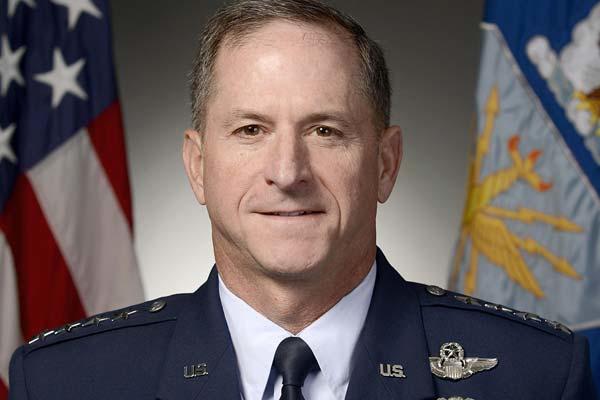Air Force Vice Chief of Staff Gen. David Goldfein appears headed for easy confirmation as the service's next chief, sitting through a confirmation hearing Thursday with no direct challenges to any positions he took.
Not surprisingly, he found himself on the same page as Senate Armed Services Committee Chairman Sen. John McCain, a Republican from Arizona, in his criticism of the 2011 Budget Control Act that set across-the-board spending caps known as sequestration.
"Our airmen, when they join, are looking to be the very best they can be," Goldfein said. "Pilots who don't fly, controllers who don't control, cyber warriors who don't operate because they're not given the resources to do so -- [their] morale goes down and they vote with their feet.
"When we were sequestered in 2015, we grounded 13 fighter squadrons and stopped flying," he added. "We're still recovering from that effort. If we're sequestered again, it'll be even worse."
Even under the caps, Goldfein said aircraft flying missions in the Middle East have a 90-percent mission capable rate. Where the "bill is paid" for that high rate, is when the planes return to home station, he said. Many come back in need of significant maintenance that now takes longer than usual because of a shortage of skilled maintainers, he said.
Goldfein also blamed spending caps for the Air Force's decision to retire the A-10 Thunderbolt, the ground attack aircraft now being used in the campaign against the Islamic State in Iraq and Syria, or ISIS. Under political pressure to meet current warfighting needs, the Air Force has postponed the mothballing of the A-10, though it still intends to follow through.
In his prepared remarks to Congress, Goldfein said the Air Force's most pressing challenge is "the rise of peer competitors with advanced military capabilities rivaling our own."
Military leaders have regularly made this same argument, arguing that the technological advantage the U.S. has enjoyed for some five decades is vanishing as competitors -- namely China and Russia -- put more resources in technology.
Goldfein said he views directed energy weapons as vital to "the third offset," Pentagon parlance for the U.S.'s strategy for staying ahead of potential enemies. For example, directed energy weapons will enable the U.S. to strike without the enemy knowing where the attack is coming from, he said.
"I describe [directed energy technology] as silent sabotage," he said. "Right now when we want to place firepower on the enemy they and everyone else in the area knows where we are."
The Air Force is also committed to growing an enlisted force of drone pilots, Goldfein said. The first class of RQ-4 Global Hawk pilots will start this fall, and when those airmen graduate the next class will start up, he said in response to a question from Sen. Jack Reed, a Democrat from Rhode Island.
Goldfein is a 1983 graduate of the Air Force Academy. He is a command pilot who flew combat missions in the Persian Gulf War, the Kosovo Campaign and, most recently, the war in Afghanistan. The Pentagon announced his selection to succeed Welsh in April.
-- Bryant Jordan can be reached at Bryant.jordan@military.com. Follow him on Twitter at@BryantJordan.






















